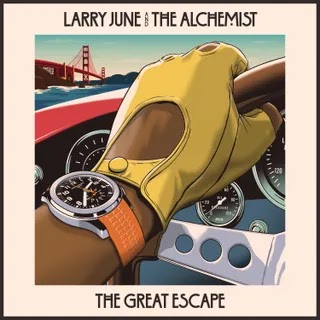On his full-length Backwoodz debut, SKECH185’s hoarsely confrontational rapping finds a perfect match in producer Jeff Markey’s jumpy, abrasive beats.
SKECH185 is ready to smack you in the face with reality. Every verse crackles with the urgency of Savion Glover’s speech at the end of Spike Lee’s Bamboozled, the weight of racism and capitalism bending him to the breaking point. SKECH cut his teeth in the 2010s Chicago underground rap scene as a member of the Tomorrow Kings collective before decamping to New York and sharing billing with acts like the Karma Kids and early artists in the Backwoodz Studioz cohort. No matter where he shows up, his voice booms, slicing through a maelstrom of indifference. He has the only guest verse on Armand Hammer’s 2018 breakout album, Paraffin, and he earns it with vignettes packed with gut-wrenching detail: “My mother lost a close friend/She sat with her and watched her fade/Funny the same man who failed with a screwdriver succeeded with AIDS.”
Five years later (and six since his last album, Gunship Diplomacy, as one half of the duo War Church, with Texas producer Analog(ue) Tape Dispenser), SKECH has formally linked with Backwoodz for He Left Nothing for the Swim Back, a full-length entirely produced by Brooklyn-based composer Jeff Markey, an on-and-off collaborator in the New York underground. Last year, Markey dropped his debut solo project, Sports & Leisure, pairing laid-back sample chops and loops with a handful of guests. While Swim may be similar in form, it’s entirely different in sound, laying out waves of abrasive, jumpy beats and samples as thick as smog. It’s the perfect backdrop for SKECH’s hoarse brand of confrontation, and a mirror of the desperate exertion suggested by its title.
SKECH has a knack for blending the tragic and the iconic in dizzying ways, often with jokes that disguise a sharp kernel of truth. On “Badly Drawn Hero,” he sardonically flips Gil-Scott Heron’s famous maxim to reflect surface-level, Target-brand activism: “The revolution won’t have a laugh track or a verse from Black Thought.” He is even more direct in “Up to Speed,” bleakly referencing the way that Chicago’s death toll supplies grist for the news and subreddit content mills: “The headlines had birthdays before they became your entertainment.” SKECH isn’t here to offer clear-cut answers to a world on fire, but he isn’t above holding your head to the stovetop in an effort to shock you awake.
He Left Nothing for the Swim Back is a world of blown-out buildings and bars that descend into “sword fight[s] for dollars.” Memories are shot through with pained melancholy, like the backyard argument turned shootout that powers the opening verse to “East Side Summer.” SKECH cuts the tension by turning directly to the camera as the march of Markey’s beat fades to vapor: “Nothing cool about living through this, fuck how them songs sound/That don’t make you real, we would’ve/Traded that ground for a tire swing.” His stories are as focused and detail-rich as his observational tracks, swerving past comfort in favor of spoonfuls of battery acid.
Markey matches the charged funk of SKECH’s perspective with beats that creak and thump like a steampunk engine in need of oil. A handful of moments—namely the title track and “The River”—verge on industrial and post-punk sounds similar to Algiers or the latest Injury Reserve record, but the rest plays closer to kooky, unnerving boom-bap. “East Side Summer” and “Jay Street” are hollowed-out drum marches retrofitted with tinny organs and wailing saxophone. SKECH keeps pace with every switch-up, but he and Markey are most in sync on the two-part closer “Western Automatic Music,” where the muted drums and warbling synths of the first part are turned inside out on the second. SKECH’s gruff declarations (“The meek will inherit it all because the brave always go first”) fly between metered rhyme and freeform, pounding on the walls of the beats and creating haunting echoes.
For all the rage, sarcasm, and sorrow coursing through He Left Nothing for the Swim Back, one moment tests SKECH’s resolve more than a thousand Kendall Jenner Pepsi protest commercials. Near the end of “The River,” he ponders if young people are even interested in inheriting the fight that older generations pass down: “What do I lose if I leave them? What do I do if they leave this?” The work may be Sisyphean, he decides, but he’ll trudge forward and fight for them anyway. SKECH and Markey have been warping traditional hip-hop into jagged, colorful forms for over a decade, but they fit well into the Backwoodz universe, and Swim has clearly sparked a new resolve in them. After some time away, they sound as prepared for the apocalypse as ever.
















0 comments:
Post a Comment